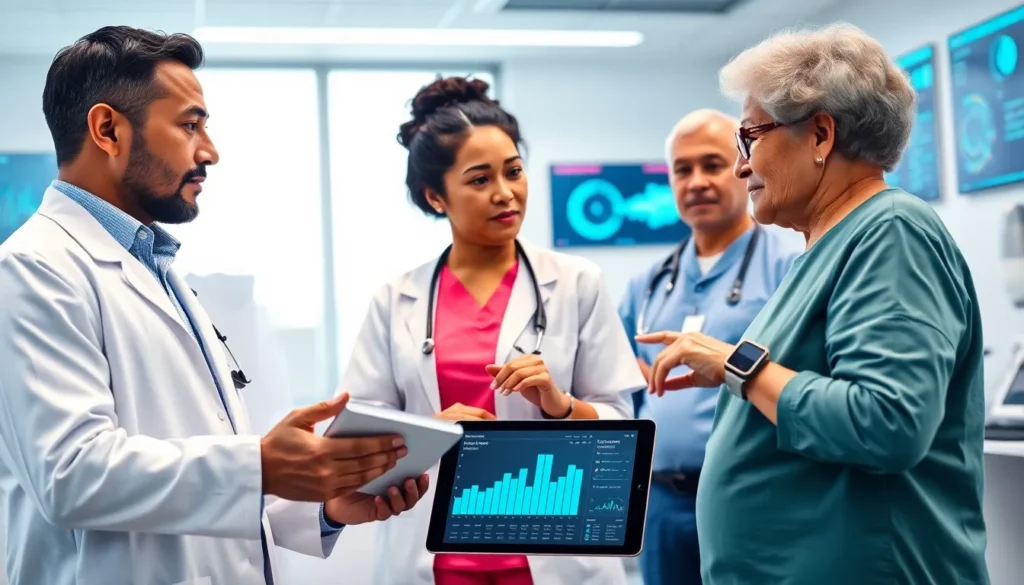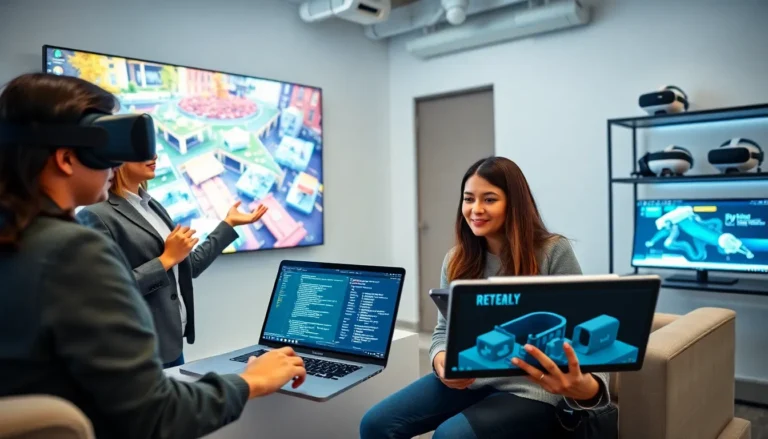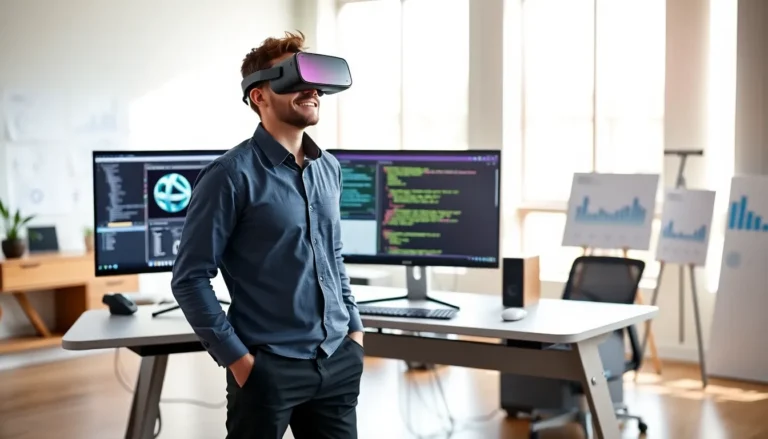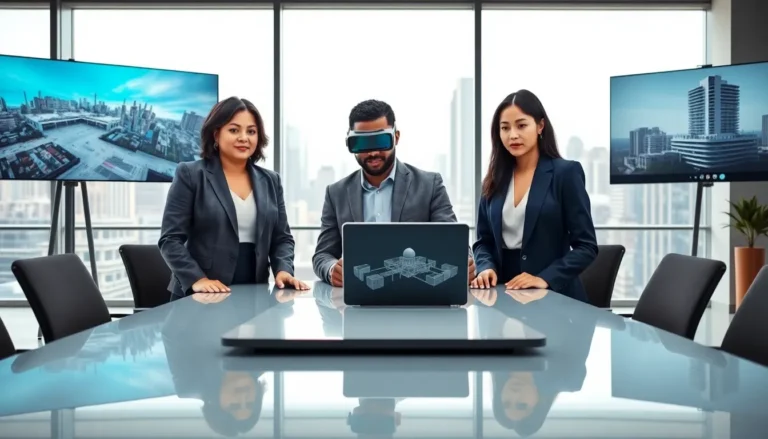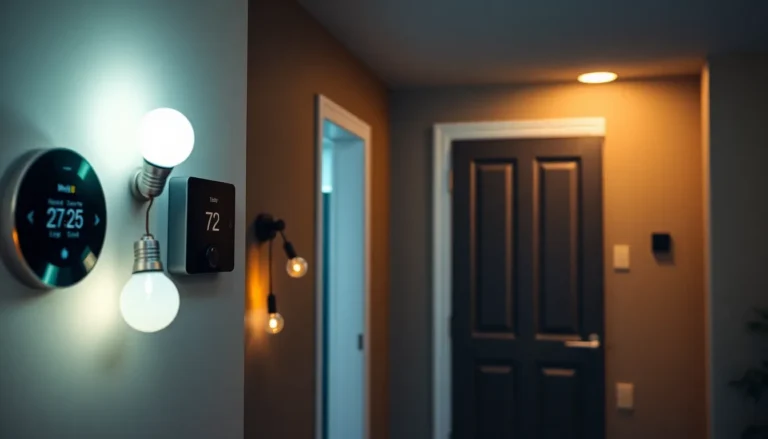In a world where smartphones can practically cook your breakfast, the Internet of Things (IoT) is quietly rewriting the playbook for healthcare. Imagine a future where your doctor knows your vitals better than your mom knows your birthday. No, it’s not science fiction: it’s happening right now, and it’s transforming how we approach patient care. Stay tuned as we unravel how IoT is reshaping healthcare, making it smarter, more efficient, and, dare we say, more enjoyable?
Table of Contents
ToggleUnderstanding The Internet Of Things (IoT)

The Internet of Things (IoT) refers to the massive network of connected devices that communicate and exchange data over the internet. Think of it as the ultimate game of telepathy between your gadgets. From smart home appliances to industrial equipment, the possibilities are vast.
In healthcare, IoT is all about integrating medical devices with clinical software and mobile apps, creating a centralized data-sharing network. This seamless flow of information enables healthcare providers to analyze patient data with unprecedented accuracy and speed, eventually improving the level of care.
The Role of IoT In Healthcare Innovations
Improved Patient Monitoring and Management
With IoT, patient monitoring takes center stage. Real-time dashboards present vital signs, medication adherence, and lifestyle patterns, allowing healthcare providers to stay ahead of potential issues. The beauty of this technology lies in its ability to alert doctors to significant changes instantaneously, providing them with a comprehensive view of the patient’s health over time.
Remote Patient Monitoring Technologies
Imagine receiving a text alert from your heart monitor saying, “Hey. You might want to sit down for this.” That’s the essence of remote monitoring technologies. Devices like wearable heart rate monitors, glucose meters, and smart patches continuously track a patient’s condition, sending critical data to healthcare professionals. This capability is especially vital for patients with chronic illnesses, who require constant vigilance and timely interventions.
Wearable Health Devices
Wearable health devices represent the intersection of technology and human health. These gadgets, from fitness trackers to smartwatches, collect invaluable data on everything from heart rate to sleep quality. They empower patients to take charge of their own health while simultaneously allowing healthcare providers to monitor their progress.
Not only do wearables motivate lifestyle changes by gamifying health, but they also send alerts about concerning metrics. The instant feedback loop created here is a game changer, helping individuals stay informed and proactive about their wellbeing.
Benefits of IoT In Healthcare
The advantages of IoT technology in healthcare are manifold. For starters, patient engagement has seen a surge as individuals take ownership of their health data through wearables and apps. Enhanced data collection enables precision medicine tailored to individual needs, revolutionizing treatment plans.
Also, hospitals experience efficiency improvements through reduced wait times and streamlined operations. Connected devices help easier inventory management, allowing healthcare institutions to monitor supplies and medication usage effectively, minimizing waste and ensuring that they’re always prepared.
Challenges and Concerns of Implementing IoT In Healthcare
Even though its numerous benefits, implementing IoT in healthcare does come with challenges. Data privacy is a significant concern: with so much sensitive information shared between devices, ensuring security becomes paramount. Data breaches could not only compromise patient confidentiality but also lead to financial losses for healthcare providers.
Also, interoperability remains a critical issue. Various manufacturers create devices with different data formats, and merging this information can be a herculean task. For IoT in healthcare to thrive, standardization is essential, making it easier for devices to communicate with one another.
Future Trends In IoT And Healthcare Integration
Looking ahead, the future of IoT in healthcare appears brighter than ever. Artificial Intelligence (AI) could take center stage, enhancing data analytics by predicting outcomes based on vast amounts of collected data. Imagine algorithms that can forecast health crises before they occur and provide proactive solutions.
Also, telemedicine is set to grow exponentially, enabled by IoT technologies. Healthcare providers will increasingly consult with patients from the comfort of their own homes, making access to care more convenient and efficient. The merging of IoT and virtual reality could also provide immersive treatment options, making rehabilitation and recovery more engaging.

